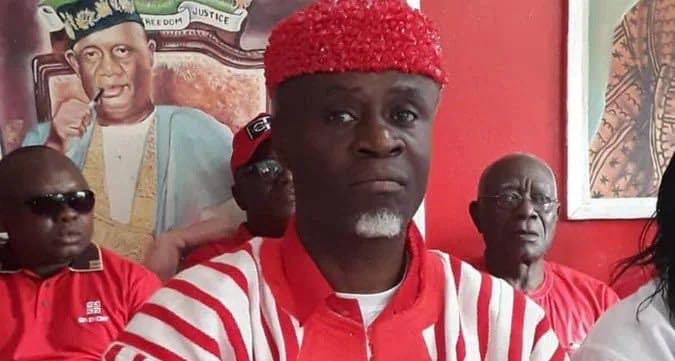By Sheriff Mahmud Ismail
May 22, 2025 — A recent letter from the All Peoples Congress (APC) to the Statistician General has triggered a fresh wave of concern over the feasibility and integrity of the proposed 2026 Population and Housing Census. The opposition party warns that the timeline published by Statistics Sierra Leone not only contradicts the promises of a modern digital census but also risks derailing both national development planning and the constitutional electoral cycle.
The APC’s position, signed by its National Secretary General, Lansana Dumbuya Esq., highlights a paradox: the government’s insistence on deploying advanced census technology is undermined by an eight-month data processing window that appears more analog than digital. At the heart of the party’s critique is a demand for realism and responsibility. “Digital tools,” Dumbuya asserts, “are meant to shorten delays, not elongate them. The current census timeline defies the logic of digital transformation.”
The Digital Promise, Undermined
Digital censuses across Africa, including in Kenya (2019) and Ghana (2021), have demonstrated that real-time data capture, automated validation, and centralized syncing can yield preliminary results within 30 to 45 days post-enumeration. Rwanda’s 2022 digital census further raised the bar, completing its enumeration, processing, and release of provisional results within just weeks. The country’s seamless use of mobile devices, cloud-based systems, and real-time dashboards showed that with the right technological infrastructure and institutional commitment, efficiency and transparency can co-exist.
These cases underscore the transformative potential of digital systems when aligned with effective project management and political will.
According to Prof. Ndubuisi Ibekwe, a leading African demographer and ICT-for-development scholar, “The essence of a digital census is agility, in both field operations and data processing. Any lag of more than two months post-enumeration reflects either technological failure or deliberate institutional opacity.”
In the Sierra Leonean context, however, the official timeline outlines data processing extending from January to August 2026, months after the main enumeration. “This kind of delay is unacceptable,” says Mr. Leonard Balogun Koroma, head of the APC’s Census Technical Committee. “We are looking at a government that has promised digital speed but is delivering analog stagnation.”
Implications for Democracy and Development
The stakes are high. Section 33 of the 1991 Constitution, as well as Section 38A(4) of the Public Elections Act, obliges the Electoral Commission to rely on up-to-date census data for boundary delimitation and the conduct of elections. In addition, the Tripartite Committee’s Section 38B recommendations clearly require credible census results to be available 24 months before the next general elections. Delays could therefore render timely electoral preparations legally and logistically impossible.
The government appears to be creating a Catch-22, “Either trying to force the APC to accept a census that arrives too late for the next elections, or to rely on the controversial and discredited 2021 Mid-Term Census figures. Neither is acceptable.
Census manipulation is not a theoretical threat in the region. In Nigeria, accusations of inflated and deflated population counts have long marred census credibility. Closer to home, the 2021 Mid-Term Census in Sierra Leone was widely criticized by civil society, international observers, and opposition parties for lacking a project document at launch, being rushed, and excluding large segments of the population.
“The manipulation of census data has historically served as a tool for electoral and resource misallocation,” warns a former UNDP advisor on governance. “It is critical for Sierra Leone’s partners to intervene early when warning signs emerge.”
Call for International Accountability
The APC’s letter was also copied to major development partners, including UNFPA, UNDP, the EU, and the United States. These actors have invested millions in promoting credible governance processes and supporting statistics institutions. Yet their silence amid troubling census developments may be interpreted as passive complicity.
“We urge our development partners not to look away,” Dumbuya emphasized. “They must speak out and do the needful. Technical support without accountability is a hollow investment.”
Management theorists like Peter Drucker long insisted that “what gets measured, gets managed.” But flawed measurements only yield flawed governance. The APC’s stance, weighs in on serious implications for national planning, budgeting, education policy, healthcare provision, and the equitable distribution of state resources.
A Time for Statesmanship, Not Strategy
The APC is clear: it does not oppose the census, but insists it must be credible, transparent, and timely. In a direct message to the ruling SLPP, Koroma urged: “If service delivery and improving lives matter to the SLPP, then they should not sabotage one of the most important tools for achieving that.”
Indeed, the census is not just a numbers game. It is about who counts, literally and figuratively, in Sierra Leone. A credible census gives voice to underserved districts, validates planning assumptions, and allows for equitable development. Conversely, a flawed or delayed census entrenches inequalities, fuels distrust, and corrodes public institutions.
Essentially, in view of the widely duscredited 2021 midterm census and the 2023 general elections, it is not enough to digitize enumeration, Sierra Leone must also digitize integrity.
The Way Forward
The APC’s demands are twofold: revise the timeline to reflect modern digital capabilities, with a maximum 30-day turnaround for preliminary results post-enumeration, and implement a transparent public communication and stakeholder engagement strategy.
Anything less, they argue, will confirm suspicions that the government is stalling the census in order to rely on outdated and manipulated figures to redraw boundaries and control the electoral terrain. That would not only be unconstitutional but deeply destabilizing.
Ultimately, the census is a national tool, not a partisan weapon. It must serve Sierra Leone’s people, all of them, and do so in a way that upholds the principles of transparency, efficiency, and justice.
In the words of Chinua Achebe, “One of the truest tests of integrity is its blunt refusal to be compromised.” Sierra Leone’s census must pass that test. The people, and their future, depend on it.











